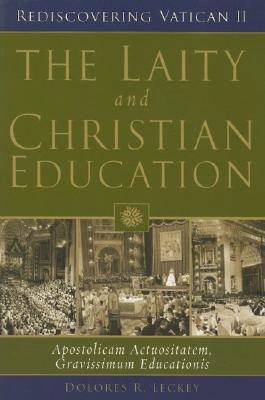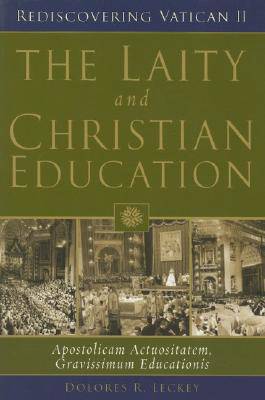
- Retrait gratuit dans votre magasin Club
- 7.000.000 titres dans notre catalogue
- Payer en toute sécurité
- Toujours un magasin près de chez vous
- Retrait gratuit dans votre magasin Club
- 7.000.000 titres dans notre catalogue
- Payer en toute sécurité
- Toujours un magasin près de chez vous
The Laity and Christian Education
Apostolicam Actuositatem, Gravissimum Educationis
Dolores R Leckey
13,95 €
+ 27 points
Description
This book in the Rediscovering Vatican II series describes how the laity became the focus of the 21st (and so far, the last) Council of the Church. The story of the theological and mission-oriented ferment in the years preceding the Council is a story of initiatives, many of them arising from the insights and commitment of lay men and women. The book provides a lens to see how ordinary men and women (in addition to creative theologians) made a difference as the Council took shape. The Council debates about the document that would ultimately become the Decree on the Apostolate of the Laity reveal the convictions and passion of those bishops who argued for an expanded role for the laity. Bishops not only articulated their belief in the competency of the laity, they did so publicly, "for the record." They showed the world, and particularly the lay members of the Catholic Church, that they trusted them. A vibrant Church needs people of various vocations trusting one another and working collaboratively to bring about the reign of God: justice, liberty, peace, righteousness, mercy. The story of the years following the Council contains new material about the efforts in the United States to implement this landmark document on the laity and its companion on Christian education. Through author interviews, archival research, and first hand witnessing to events, the reader will see the rich reservoir of teaching regarding the laity--and especially the role of women--which developed in the post-Council years. One of the goals of this book, then, is that laity and clergy come to know the facts of the expanding role of the laity in our time, and to do so without ideological accretions. +
Spécifications
Parties prenantes
- Auteur(s) :
- Editeur:
Contenu
- Nombre de pages :
- 128
- Langue:
- Anglais
- Collection :
Caractéristiques
- EAN:
- 9780809142200
- Date de parution :
- 02-01-07
- Format:
- Livre broché
- Format numérique:
- Trade paperback (VS)
- Dimensions :
- 162 mm x 228 mm
- Poids :
- 213 g







